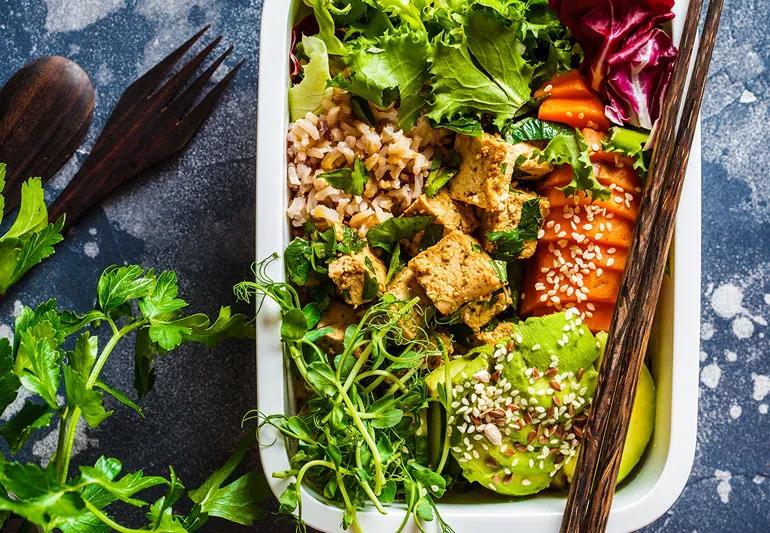Get a cooking break without throwing good nutrition out the window

When you find yourself without enough time to cook dinner on days that are busy with work, school and extra-curricular activities, you know how a local restaurant can save the day. Many restaurants have made takeout a part of their regular offerings. Ordering from them can make your day a little easier, while also helping you feel good about supporting a small business.
Advertisement
Cleveland Clinic is a non-profit academic medical center. Advertising on our site helps support our mission. We do not endorse non-Cleveland Clinic products or services. Policy
If this has become a go-to solution for you, learn how you can keep treating yourself to these cooking breaks without sacrificing healthy meals.
Takeout doesn’t have to mean unhealthy, says dietitian Anna Kippen, MS, RDN, LD. Even foods you’d typically consider “off-limits” can be tweaked to up their nutritional value. Consider these ideas when you’re ordering food to go.
For Asian or Mexican cuisine:
If you’re craving Italian:
Regardless of the restaurant, try to lower the calorie intake by choosing:
Advertisement
Takeout doesn’t mean you have to skimp on veggies. Try:
Dairy has nutritional value, but a takeout meal loaded with dairy can do more harm than good. To get the deliciousness with fewer calories, ask the restaurant to prepare the dish:
Baked, steamed, roasted or grilled are healthier ways to prepare foods. Try these:
Many dishes are slathered in sauce, so ask for:
Beans are high in fiber — they help you feel full and even have heart benefits like lowering cholesterol. Some easy ways to get more beans? Try to:
Advertisement
Advertisement
Learn more about our editorial process.
Advertisement

This color additive, found in many pre-packaged foods, may affect people with ADHD or allergies

With a focus on internal cues for hunger and fullness, this eating style may revolutionize your relationship with food

Review the ingredients, watch for sugar and fat, and choose one with the right amount of protein for your needs

Getting the hang of portions can help you better understand how much to put on your plate

A typical recommended balanced diet is half fruits and veggies, a quarter protein and a quarter grains

Foods high in protein, fiber and water can help keep hunger at bay

This quirky food trend is harmless, as long as you’re getting enough protein, fiber and healthy fats

With a little planning, you can fill your belly and boost your energy

Wearing a scarf, adjusting your outdoor activities and following your asthma treatment plan can help limit breathing problems

Your diet in the weeks, days and hours ahead of your race can power you to the finish line

When someone guilt trips you, they’re using emotionally manipulative behavior to try to get you to act a certain way